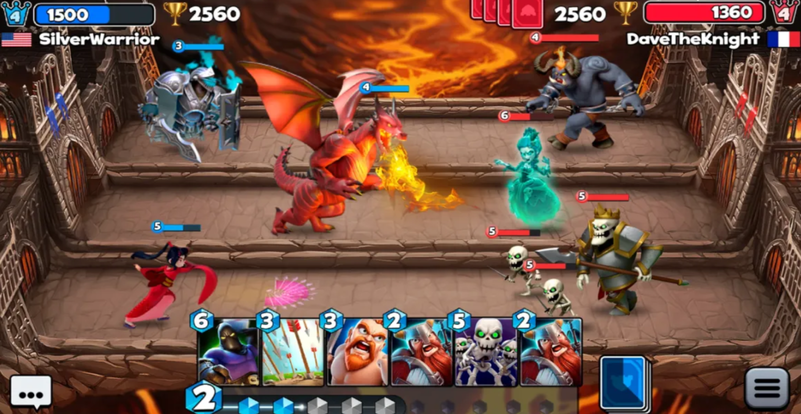Web3 has some key elements that revolutionize the gaming experience in a profound way that Web2 games cannot match. This is due to the underlying Web3 architecture as well as the underlying philosophy of rewarding gamers instead of profiting from them.
Though not without its hurdles, gaming is often said to be the primary means to onboard everyday users from Web2.
Pitfalls Of Web2 Gaming
Web2 has many pitfalls, and most of these pitfalls relate to how players are rewarded for their time and attention. The disadvantages include:
- No true asset ownership.
- No rewards for players and few rewards for developers.
- No integration with crypto wallets.
- Experience is not truly interactive and immersive.
- Limited interoperability.
- Limited monetization methods for players.
- No governance models such as DAOs.
- Players are not involved in design or governance.
- No real-world application.
Basically, Web2 games revolve around a centralized model of ownership. A core team of corporate private developers creates a game. The game is then released on a major publication platform. The games corporation gets the money, alongside the publication platform (such as Steam). The developers often receive a fixed salary while the gamers pay up for the game.
This has been a long-standing contention as only a small number of people kept the profits from a particular game. Previously, you could spend thousands of hours (literally) on a Web2 game and see no tangible monetary return. Web3 inverts this architecture with a core emphasis on rewarding gamers and letting them take control.
What Web3 Gaming Offers
Web3 games turn the previous model on its head completely. Players can make a profit through a variety of earning modalities (Play-To-Earn, Play-And-Earn, Share-To-Earn, Learn-To-Earn, etc). NFTs, especially Genesis NFTs, can appreciate in value over time. Players usually still have to invest in the game, typically by paying in Ethereum for an NFT. But the investment can be made back through playing, and these earnings are not insignificant, if a player becomes skilled.
Web3 gaming provides the ability for players to take part in the ecosystem through Decentralized Autonomous Organizations (DAOs). They can take part in social governance and every player will also have a voice proportional to the stake in the ecosystem. DAOs can be created for practically any purpose and can be specific to a single chain or serve multiple chains.
Another key pitfall of Web2 that is addressed by Web3 would be identity management. Web3 allows gamers to have 100% control over their identity, alongside crypto wallet integration for micropayments and rewards. This will be decentralized control over your identity and your gaming avatars and your finances.
Put simply, Web2 gaming is not fit to integrate with the new era that will involve AI, machine-to-machine communication, microtransactions, decentralized applications, and more. It’s a deprecated system that is being replaced right now.
Web3 Gaming Examples
A number of Web3 games have been introduced that attest to how lucrative Web3 games can be for players. Web3 platforms such as Axie Infinity, Dcentraland, and the Sandbox are proof of how much money can be made from flipping NFTs, building up your character, or owning a virtual plot of land.
Other metaverses have a more real-life use case. CaesarVerse, for instance, is based on a historical era (the Roman Empire) and can serve as an educational platform for university students. The possibility of VR and AR integration at a future date will provide students with a much richer experience with facts that are far more easily retained as opposed to reading a textbook. The game is designed to be entertaining, rewarding in a financial sense, and educational.
According to CaesarVerse CEO Colin Helm – “Web3 gaming offers a completely new paradigm that will help to onboard people from Web2 to Web3. We are slowly but surely making the transition and it will have major benefits, provided we take the time to understand the technologies and how they can be used for the benefit of wider society. ”
Aside from specific games, there is a multitude of gaming DAOs, allowing gamers to raise funds, take profits, test, and have governance over a gaming ecosystem. It is basically a gaming ecosystem run by gamers from top to bottom. Users typically stake their tokens in order to vote. Examples of prominent gaming DAOs, include Star Atlas, Decentral Games, and BuildGuidl. Each DAO has specific purposes that you’ll need to read up on before joining.
A Long Road Ahead
While the gaming ecosystem is being completely redefined for the better, we are currently in the beginning stages. A lot of work remains to be done in terms of identity management and security. Axie Infinity was hacked for $650 million, and most still have no idea about how to protect their private keys.
With the integration of AI, VR, and AR into Web3 gaming, the human race also remains completely unprepared in terms of online interaction. ChatGPT 4.0 has demonstrated just how dangerous technological advances can be without proper consideration of ethics and philosophy.
Web3 gaming has a lot to offer and is superior to Web2 in every possible way – we just need to proceed steadily and with caution to reap the rewards.
